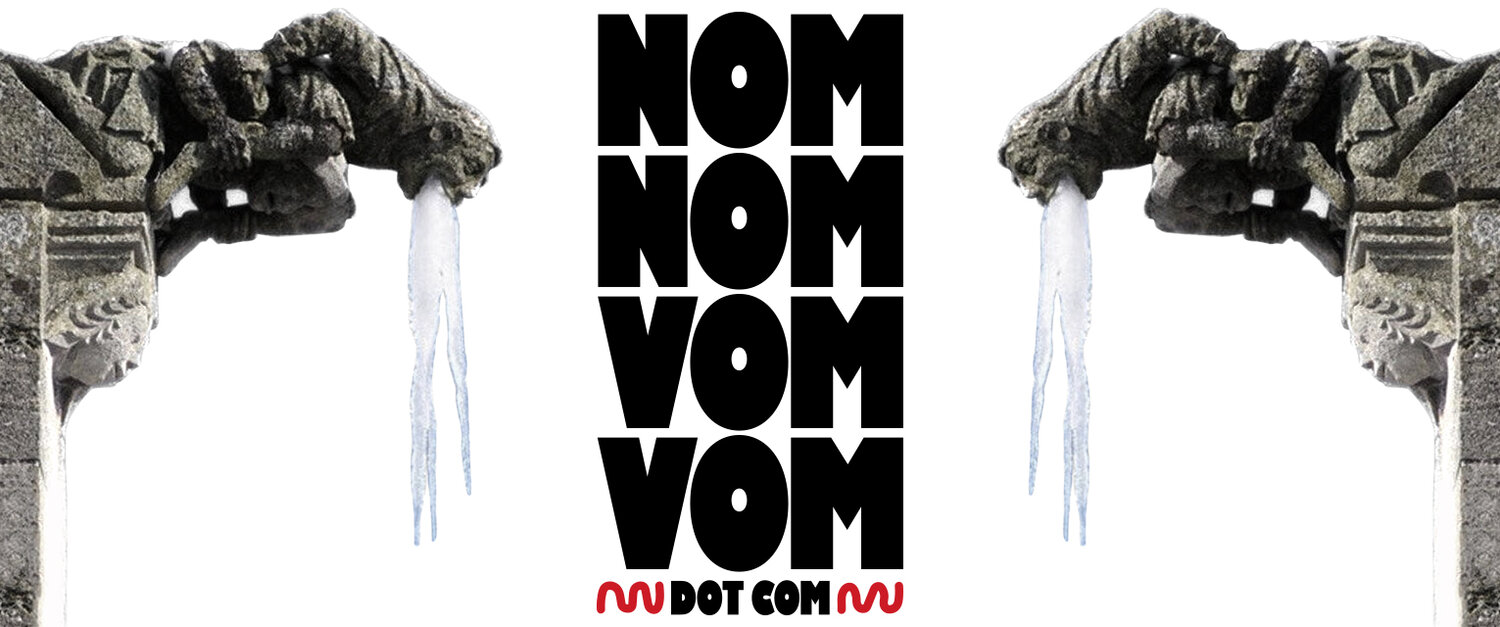On dented cans
Should I actually be worried about eating something from a dented can? If so, why are there so many dented cans at the supermarket?
The warning to ‘avoid dented cans’ isn’t totally accurate. What harm could come from a wee dent in the side of a can? Turns out, none. A more accurate warning would be ‘avoid punctured cans.’ What harm could come from a pinprick in a can? Turns out a lot, actually.
A can with a hole in it would invite bacteria growth. Since cans aren’t refrigerated and are generally stored for a long time, a contaminated can could host an impressive amount of bacteria growth before its contents are eaten.
Consuming a heroic dose of bacteria can end badly. I’m not talking about a minor stomach ache; I’m talking about a quantity of vomit that would prevent you from getting the security deposit back on your apartment. I’m talking Niagara Falls-style diarrhea. I’m talking the kind of food poisoning that takes years of therapy to get past.
Me after eating a can with a puncture in it.
Onto your second question: Yes, you may see a few dented cans at the supermarket. Why? Probably because shoppers accidentally knock cans off the shelf—denting them—and then put them back on the shelf. An employee at a reputable supermarket would pull a dented can from the shelf and put it somewhere in the back. In theory, supermarkets can return damaged goods to the vendor, but it’s a hassle for not much of a refund. Plus, a freak like me will buy a dented can of refried beans if it’s the last one on the shelf.
If you’re seeing a lot of dented cans at your local supermarket, it means you’re shopping at a disreputable establishment. Picture this: some bozo in a Queens warehouse is texting while using a forklift to unload a pallet of refried beans. He unwittingly pilots the forklift into a pylon, which results in a collision. The warehouse boss is pissed — now they can’t sell this pallet-o-beans!— and it gets deposited into a dark corner of the warehouse. But there is a buyer!
Your sketchy local grocer buys the pallet for 20 cents on the dollar and displays it at the alluring price of $1 per can. He knows that his customer (me, and perhaps you) won’t let a scuffed label, a litany of dents, and a spattering of brown goop across the logo stop me from dolla’ beans. In fact, I will fill my whole pantry with them because I am cheap as fuck and I understand the risks around dented cans.
In summary:
Dents are not the problem. Punctures are the problem.
Do not be concerned with small dents or dents across the side of a can.
However, avoid cans that are so deeply dented that there may actually be a tiny hole at the deepest point. According to the USDA, a deep dent is “one that you can lay your finger into”. (Kinky.)
Avoid cans that are dented at the seam, aka along the top or bottom ring. Since this is where cans are sealed, it’s a weak point and a prime spot for a dent-puncture hybrid.
+++++


